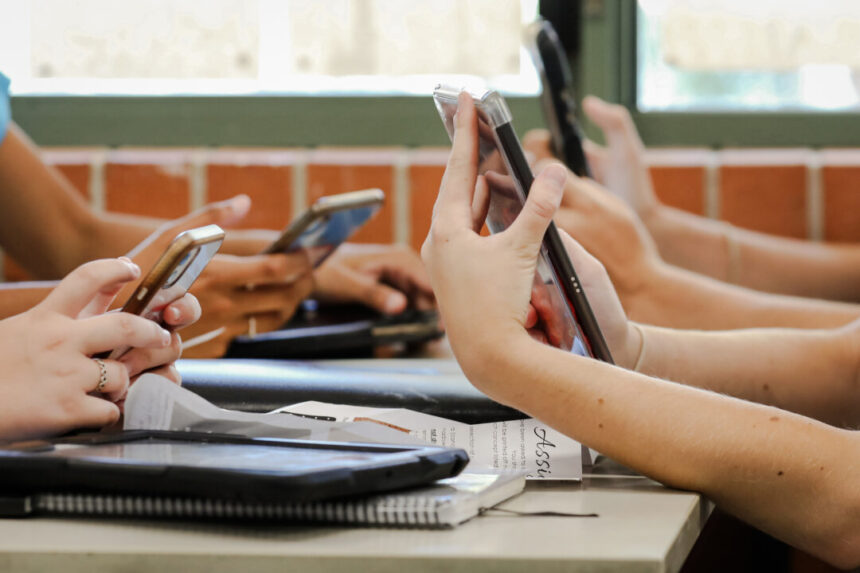Commentary
A high school student named Arabella from Miami shared her perspective with The New York Times regarding cellphone bans: “In my school, many students amble around campus, staring down at their phones, completely oblivious to the world around them. I have witnessed some of my peers bump into walls or into other students as they are entranced in their small electronic devices.”
While Arabella’s observation may seem amusing, the impact of phones in the classroom can have more dire consequences. Mylea, another American high school student, expressed her concerns to the Times, stating, “I think that schools should ban cellphones because most problems in school typically circle back to cellphones. … Kids are also always on their phones during class. Their grades start to go down and then they fail.” Mylea also highlighted how phones can facilitate bullying behavior, such as taking inappropriate pictures and using them for online harassment.
In response to the growing concerns, many school jurisdictions worldwide are implementing bans on cellphones in the classroom. The enforcement varies from an honor system where students are expected to resist the urge to use their phones to schools that physically lock away phones at the start of the day.
One guidance counselor at Chatelech Secondary School in British Columbia noted the positive impact of their cellphone ban, stating, “We are seeing improved mental health, decreased bullying, increased engagement in class, and more social interaction.”
The Ontario government recently announced the implementation of stringent province-wide classroom cellphone restrictions. Students in kindergarten to Grade 6 must keep phones on silent and out of sight for the entire school day unless explicitly permitted by an educator. For students in Grades 7 to 12, cellphones are not allowed during class time unless directed by the educator.
While these rules are beneficial, enforcement remains a challenge. Teachers and administrators have expressed concerns about limited ability to ensure compliance with bans. Support for teachers in enforcing these rules is crucial. If a student uses their phone in class, it should be confiscated and stored either in the teacher’s desk or the main office for the day.
Addressing the lack of consequences for various misbehaviors in schools, including cellphone usage, is essential. Implementing consequences like phone confiscation for improper usage can help deter further misconduct.
The issue extends beyond just cellphone use; it encompasses eroding social norms and hindering learning in classrooms. Strong enforcement of bans and consequences is necessary to address these challenges.
The Ontario government is also taking steps to regulate social media by removing access to these platforms on school networks and devices. Report cards will now include comments on students’ distraction levels in class, providing parents with valuable information.
In conclusion, the impact of cellphone usage in classrooms is significant, affecting social behavior and academic performance. Implementing and enforcing bans on cellphones is crucial for maintaining a conducive learning environment.
Views expressed in this article are opinions of the author and do not necessarily reflect the views of The Epoch Times.
Please rewrite the following sentence:
“The cat sat lazily on the windowsill, watching the birds outside.”
“The cat lounged on the windowsill, observing the birds outside with a sense of ease.”
Source link







